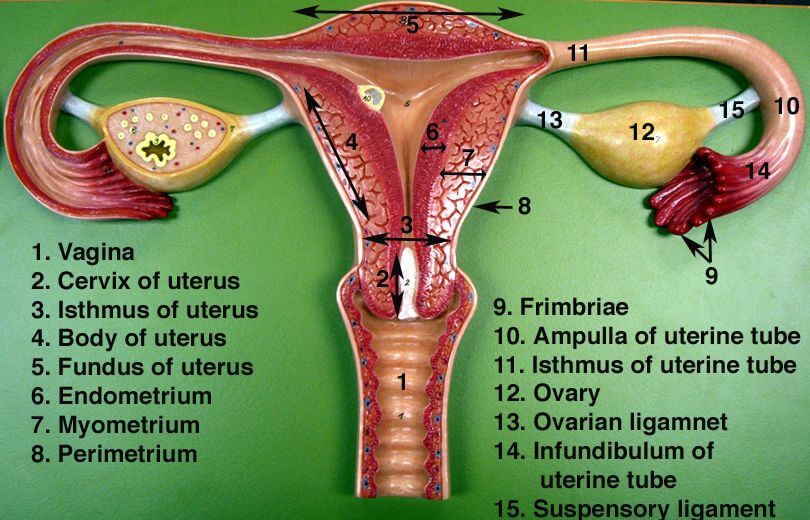Vulvar Cancer: Causes, Symptoms and Treatment


Written and verified by the doctor Mariel Mendoza
Vulvar cancer affects the external surface of the external female genitalia, which is called the “vulva”. This tumor usually progresses slowly but progressively and can affect any organ of the vulva.
It’s usually diagnosed in postmenopausal women and is associated with human papillomavirus infection. Because it tends to be asymptomatic, it usually goes unnoticed until it has progressed.
To diagnose vulvar cancer, it’s necessary to perform a biopsy of the lesion. However, its prognosis depends on the size, type, and whether it’s disseminated or not. Whatever the case, early diagnosis is important.
What is the vulva?

The vulva represents the external female genital organs: labia majora, labia minora, clitoris, Bartholin’s glands and external orifice of the urethra. Vulvar cancer is most common on the inner edges of the labia minora of the vulva.
You may be interested in: Anterior Vaginal Prolapse or Cystocele: Causes and Treatment
Vulvar cancer: rare and with unknown cause
Vulvar cancer is very rare and accounts for only 3-5% of cancers of the female genital tract. Moreover, its exact cause is unknown.
In general, cancer is caused by mutations in cellular DNA that cause cells to abnormally grow and divide rapidly. In this way, the cells accumulate to form a tumor. They also have the ability to invade nearby tissues or spread to distant parts of the body. However, some factors increase the risk of developing it:
- Old age (postmenopausal women, especially after 65 years of age)
- Human papillomavirus infection
- Prolonged tobacco use
- Any disorder with immunosuppression
- History of pre-cancerous lesions of the vulva (such as vulvar intraepithelial neoplasia)
- Other cancers of the female genital tract
- Vulvar skin diseases (lichen sclerosus)
Find out more: Postmenopausal Vaginal Atrophy
Vulvar cancer symptoms
Vulvar cancer is usually asymptomatic. However, when symptoms do appear they usually include pruritus (itching), the appearance of abnormal masses on the vulva associated with pain and tenderness, or the presence of ulcers that don’t heal.
Also, there may be bleeding that isn’t related to menstruation or changes in the coloration of the vulvar skin. The coloration may be reddish, whitish, or bluish (associated with melanoma).
It’s more frequently diagnosed at older ages because it’s a slow-moving cancer, and, for this reason it’s usually diagnosed in advanced stages. In addition, it can spread to neighboring tissues, through the lymphatic system or the blood (in which case it predominantly affects the lung, liver, and bones).
The diagnosis requires careful evaluation

Vulvar cancer is usually diagnosed between the ages of 70 and 75. This requires a thorough physical examination of the lesions present on the vulva. Any abnormalities should be studied by inspection with a magnifying glass or binocular magnifying lens (colposcope).
After determining the area of abnormal skin, a sample should be taken and examined (a biopsy). If the lesions can’t be identified, stains are applied to the abnormal areas to determine where the biopsy should be performed – 5% acetic acid or 1% toluidine blue can be applied, which is then washed with 3% dilute acetic acid.
Once the biopsy of the tissue suspected of vulvar cancer has been obtained, histological examination is performed. Up to 90% are squamous cell carcinoma (develops in the outermost layer of the skin). The remaining 10% vary between melanoma (from the cells that produce skin pigment), adenocarcinomas (originating in the glandular cells), or rarely, basal cell or Bartholin gland carcinomas.
The treatment of vulvar cancer depends on its characteristics
Both the prognosis and treatment of vulvar cancer depend on its size, type, and whether or not it has spread. However, treatment is based on surgical intervention. It ranges from wide removal of the lesion to radical resection of the vulva and emptying of nearby lymph nodes. When dissemination is shown, radiotherapy or chemotherapy should be given before surgery to reduce the size of the tumor.
Vulvar cancer can be prevented
To prevent vulvar cancer, one of the methods is to reduce the risk of contracting sexually transmitted diseases. Therefore, it’s essential to use condoms during sexual intercourse and to be vaccinated against the human papillomavirus infection.
All cited sources were thoroughly reviewed by our team to ensure their quality, reliability, currency, and validity. The bibliography of this article was considered reliable and of academic or scientific accuracy.
- Estévez L, Santana S, Gómez I. Cáncer de vulva. Medicentro 2006;10(2). Disponible en http://www.medicentro.sld.cu/index.php/medicentro/article/view/992/1001.
- Hacker N, Eifel P, Velden J. Cáncer of the Vulva. International Journal of Gynecology and Obstetrics 2015;131:76-83. Disponible en https://core.ac.uk/download/pdf/82638897.pdf.
- Rodríguez C, et al. Cáncer de vulva. Más Dermatol 2008;4. Disponible en https://masdermatologia.com/.
This text is provided for informational purposes only and does not replace consultation with a professional. If in doubt, consult your specialist.








